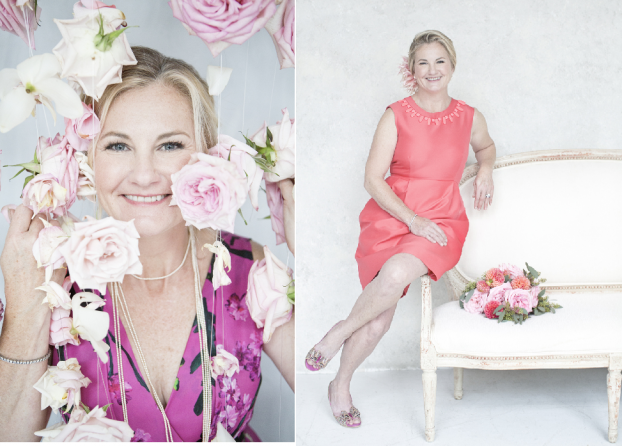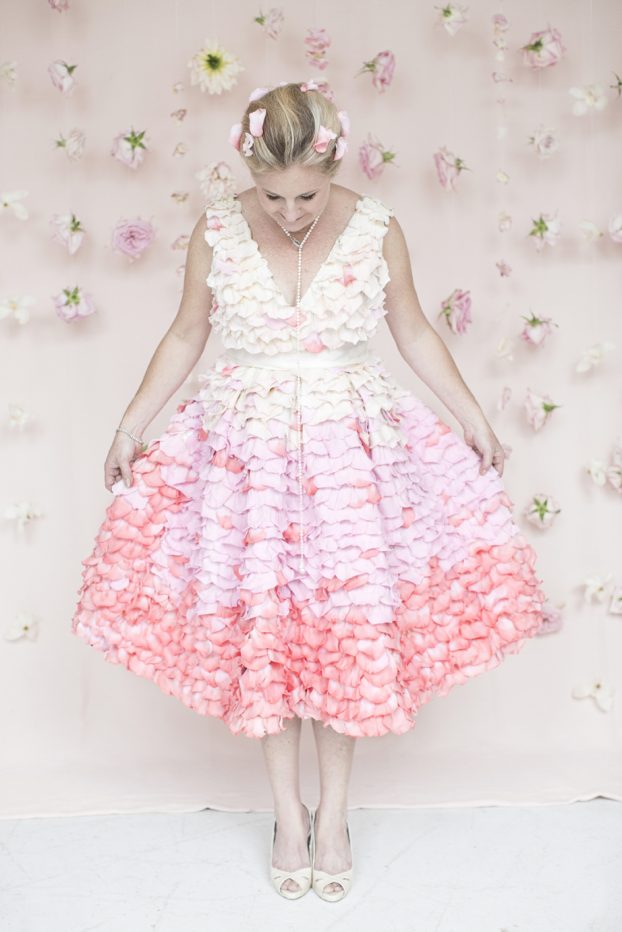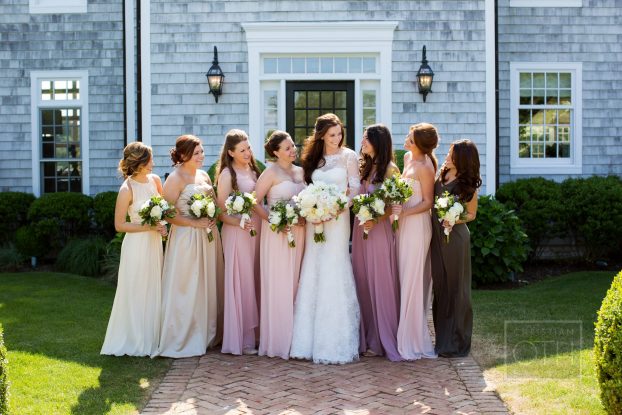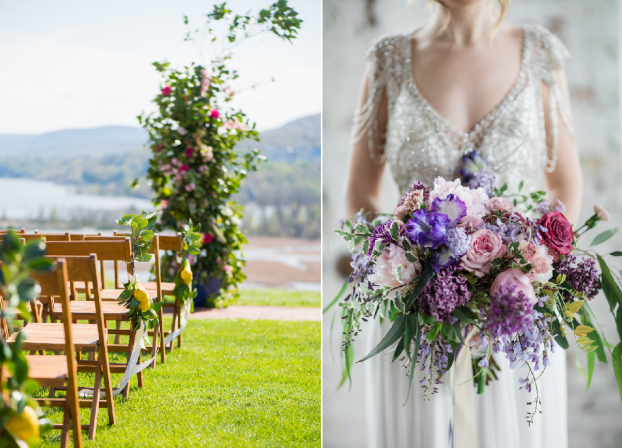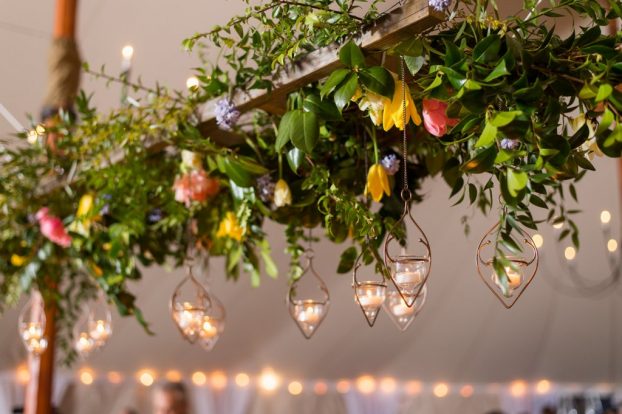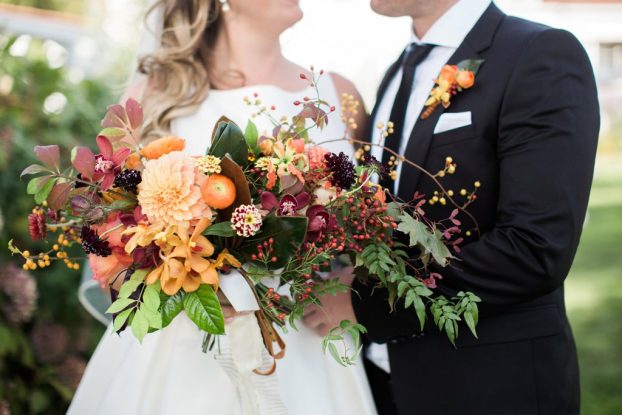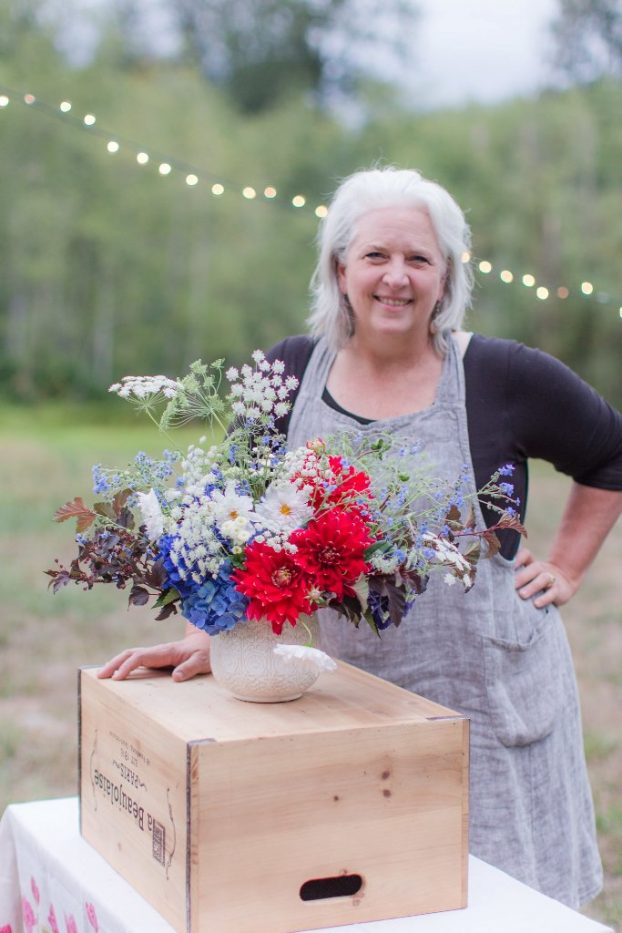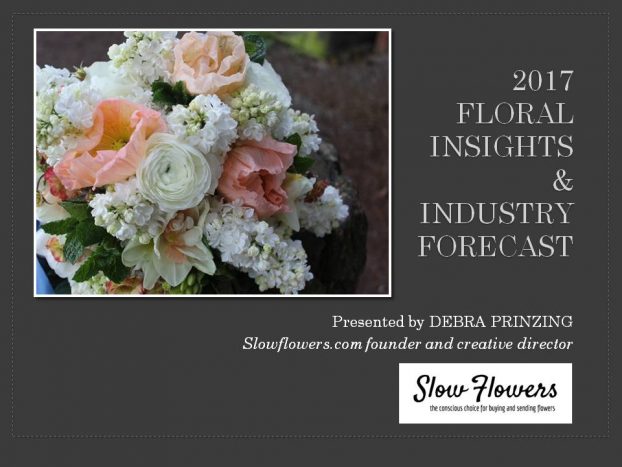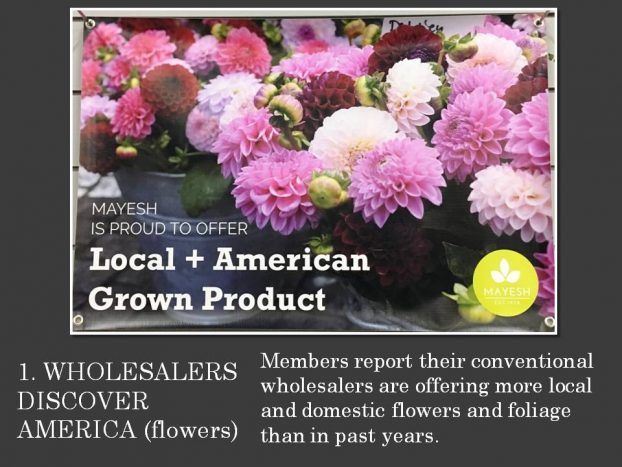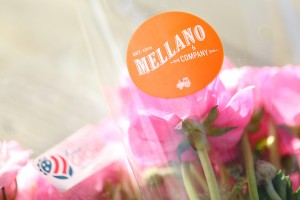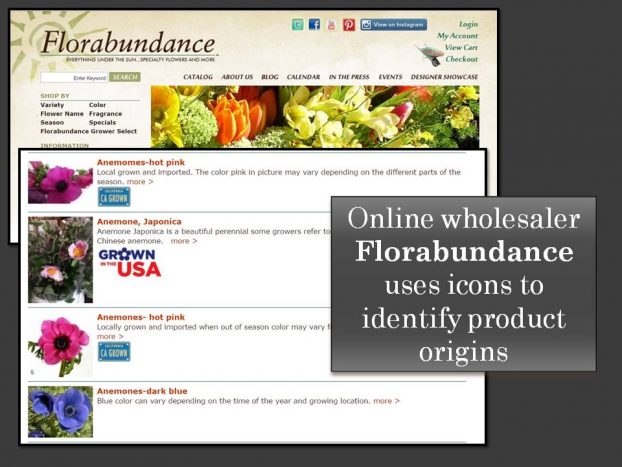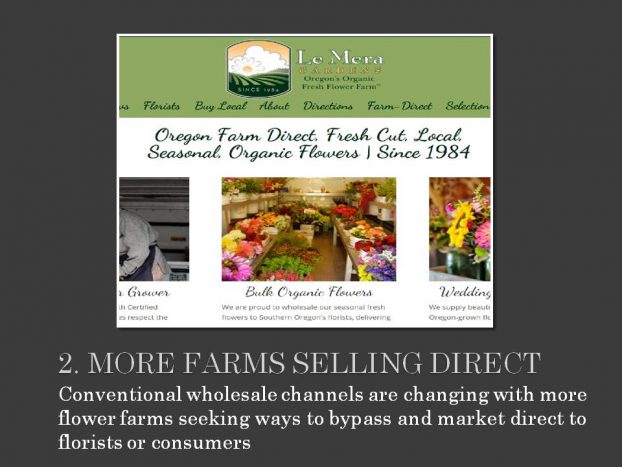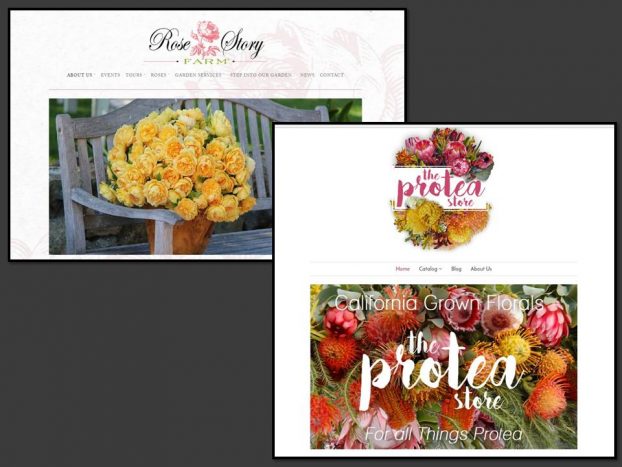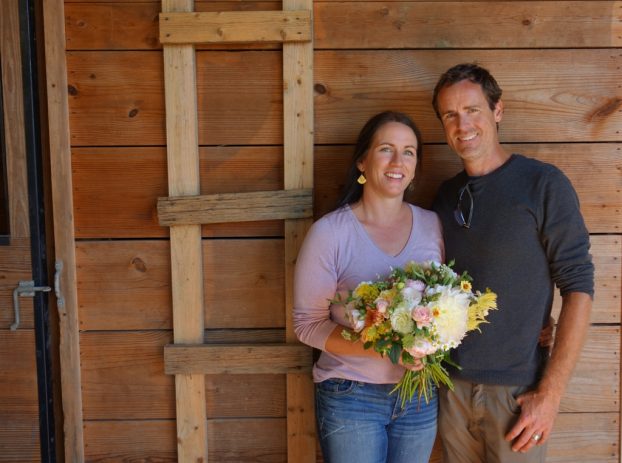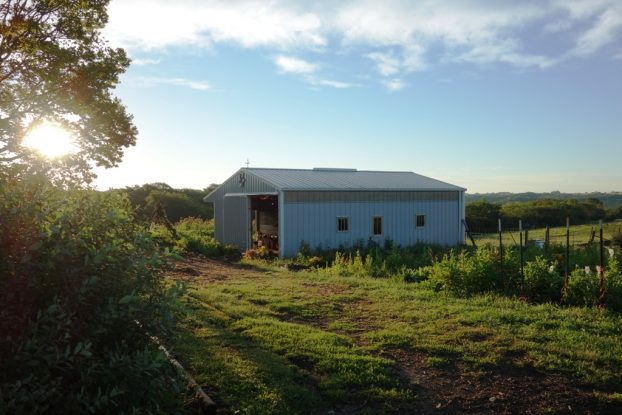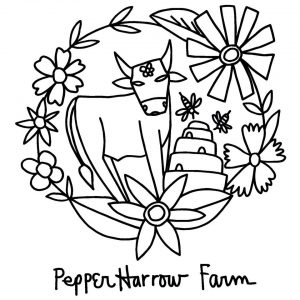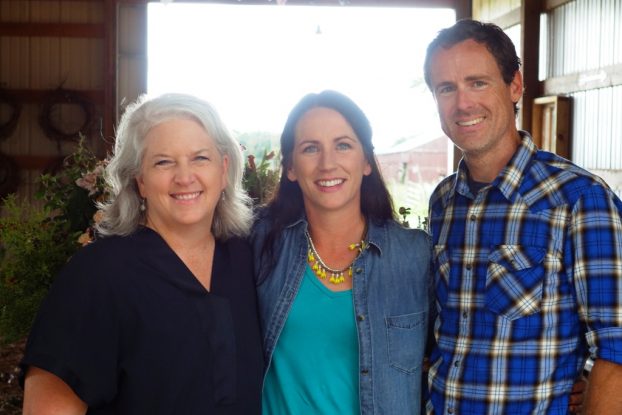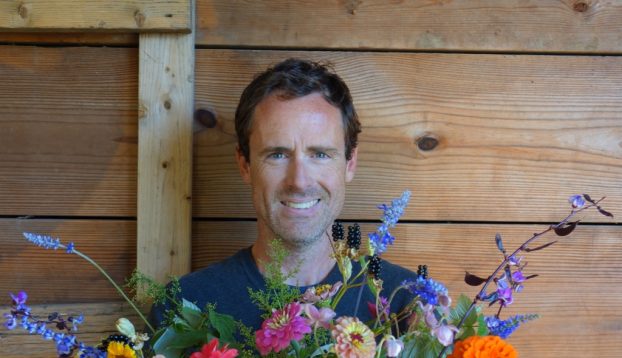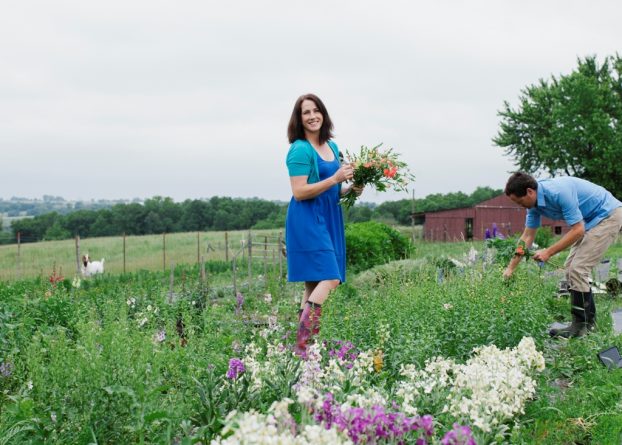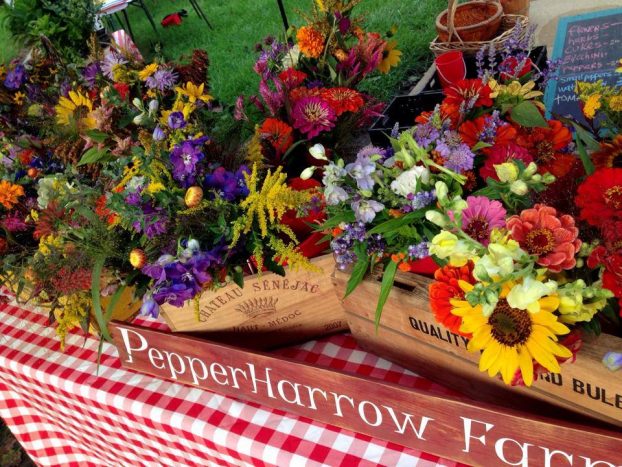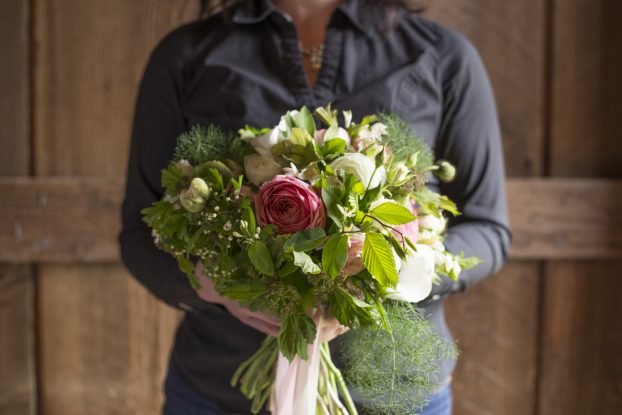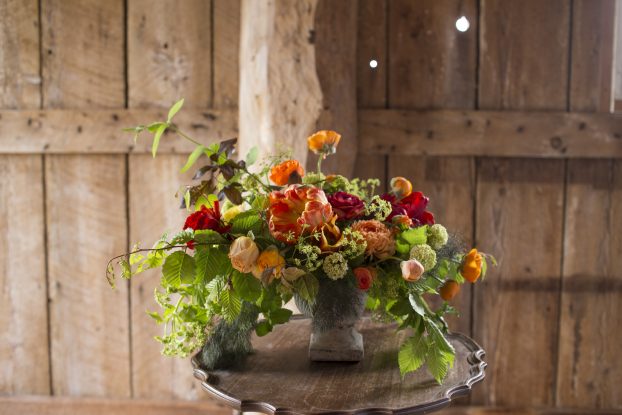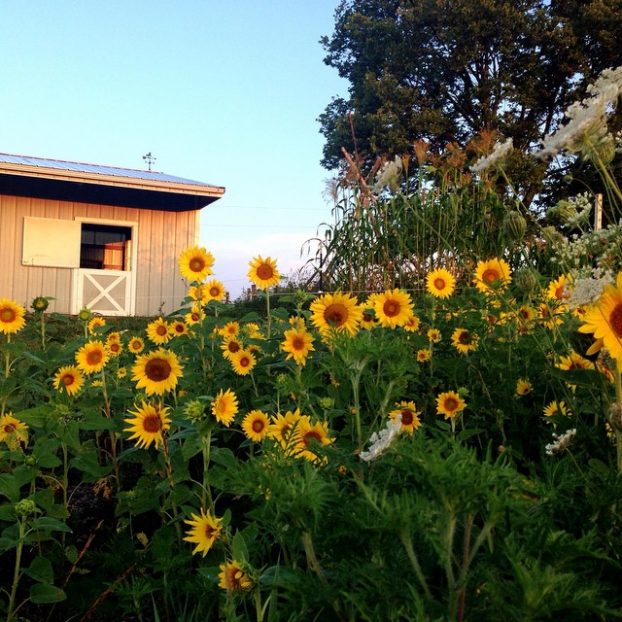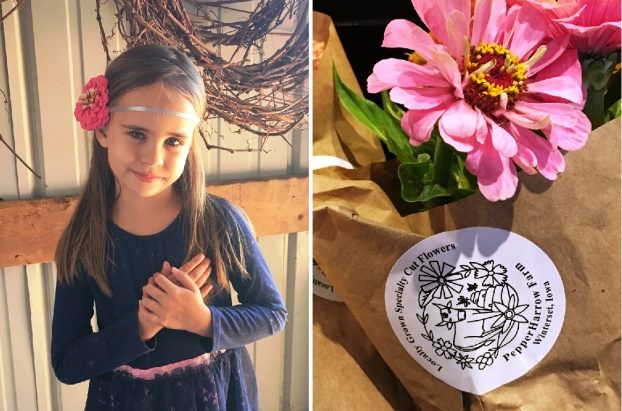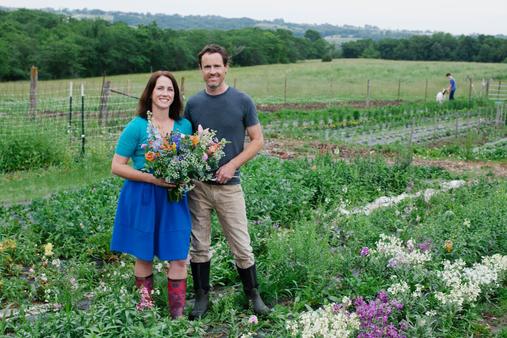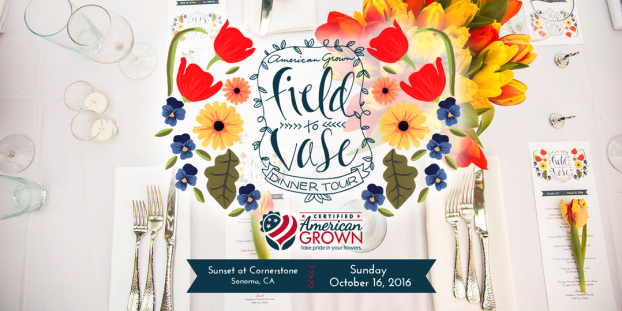Podcast: Play in new window | Download
Subscribe: Apple Podcasts | Podcast Index | RSS | More
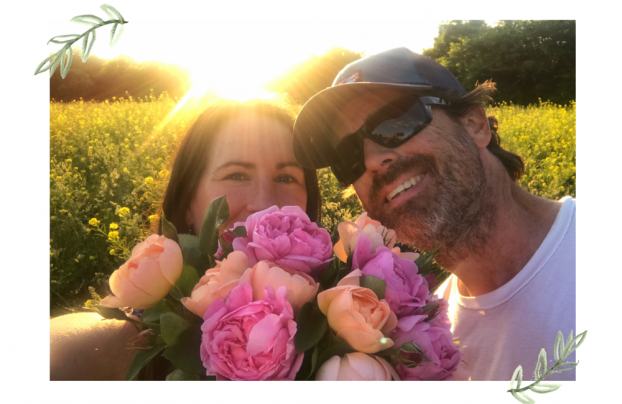
Jenn and Adam O’Neal of PepperHarrow Farm just announced their first extended Flower Farmer Workshop — and I’ll be there!
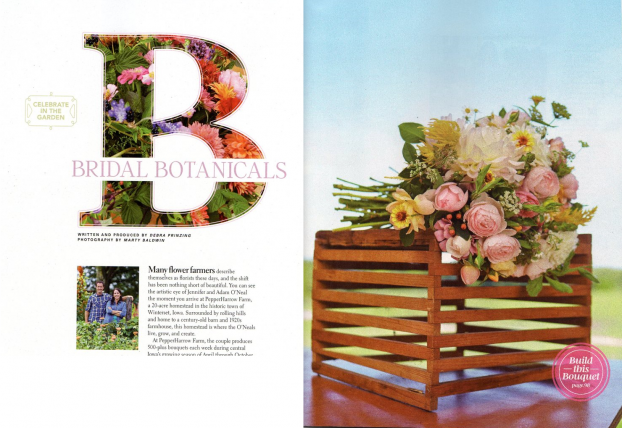
PepperHarrow’s farm, flowers and wedding design techniques are featured in this month’s Country Gardens.
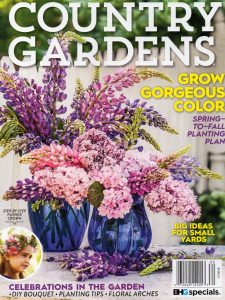 Before I introduce you to today’s featured guest, floral designer Carrie Wilcox, I want to share a short audio recording with Jenn and Adam O’Neal of PepperHarrow Farm, based in Winterset, Iowa.
Before I introduce you to today’s featured guest, floral designer Carrie Wilcox, I want to share a short audio recording with Jenn and Adam O’Neal of PepperHarrow Farm, based in Winterset, Iowa.
They’re past guests of this podcast and we’re all excited about the new Spring issue of Country Gardens magazine, out on newsstands now, because it features a beautiful article I produced and wrote about the O’Neals — called “Bridal Botanicals.”
We are reuniting this coming September because Jenn and Adam have invited me to join their Flower Farmer Workshop on Saturday, September 8 and Sunday, September 9. Check out all the details here — and please join us for two days focused on flower farming, floral design and creative writing to share your stories.
Okay, Now, please meet Carrie Wilcox. Carrie is a longtime Slow Flowers member and supporter who I was able to spend a few days with recently at the Team Flower Conference in Orlando. We managed to grab 30 minutes for me to record a fun conversation with a very fun-loving woman. Here’s a bit more about Carrie:
Carrie Wilcox is the owner of Carrie Wilcox Floral Design based in Fairfield, Connecticut.
Carrie has been a designer with several flower shops as well as some of the most highly regarded floral and event studios.
In 2012, she earned the European Masters Certification after studying in Bruges, Belgium, and is currently a candidate for the A.I.F.D. designation. Carrie also enjoys entering floral design competitions all over the United States.
She writes: “For me, flowers are the most simple but expressive things in life. They share in your happiness during festive times and console you in moments of sorrow.
Some of my most special memories are punctuated with flowers.
Memories of my grandmother and I picking flowers from her garden to use on the dinner table and the frilly and fragrant lily of the valley from my bridal bouquet when I married the man of my dreams.
Flowers have always had a special place in my heart. Growing up in coastal Fairfield County, Connecticut, the summer was always filled with bushes of electric blue hydrangea and the kaleidoscope of colors brought to life by the tea roses in my mother’s garden. I’ve been designing and decorating with flowers from an early age, when I joined my mother and sister working at a local flower shop. Now, I share my love of flowers and including them in all kinds of life events with my own teenage daughter. I also enjoy sharing my knowledge of the floral industry including decorating with and arranging flowers through teaching and speaking engagements all over New England.”
You can find and follow Carrie Wilcox on Instagram here.
Here is the link to Hanah Silk, a favorite source of Carrie’s for USA-made source for custom-dyed velvet ribbons.
Muddy Feet Flower Farm, one of Carrie’s favorite sources for local flowers.
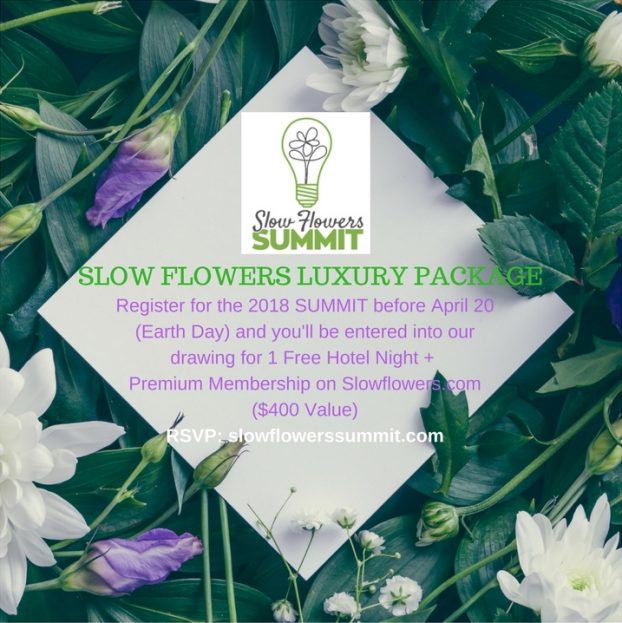
Thanks so much for joining me today. The Slow Flowers Luxury Package promotion continues now through April 22nd — Earth Day. If you register for the upcoming Slow Flowers Summit conference by that date, you’ll be entered into a random drawing to receive a $400 gift package.
 The Slow Flowers Podcast has been downloaded more than 303,500 times by listeners like you. Thank you for downloading, listening, commenting and sharing — it means so much. And thank you to Mayesh Wholesale for recently listing the Slow Flowers Podcast in its blog post: “The Floral Podcasts You Should be Listening to Right Now.” We’re included in some great company.
The Slow Flowers Podcast has been downloaded more than 303,500 times by listeners like you. Thank you for downloading, listening, commenting and sharing — it means so much. And thank you to Mayesh Wholesale for recently listing the Slow Flowers Podcast in its blog post: “The Floral Podcasts You Should be Listening to Right Now.” We’re included in some great company.
As the Slow Flowers Movement gains more supporters and more passionate participants who believe in the importance of the American cut flower industry, the momentum is contagious. I know you feel it, too. I value your support and invite you to show your thanks and with a donation to support my ongoing advocacy, education and outreach activities.
Thank you to our sponsors who have supported Slow Flowers and all of our programs including this podcast, American Flowers Week, the Slowflowers.com online directory to American grown flowers, as well as our new channels, Slow Flowers Journal and the 2018 Slow Flowers Summit.
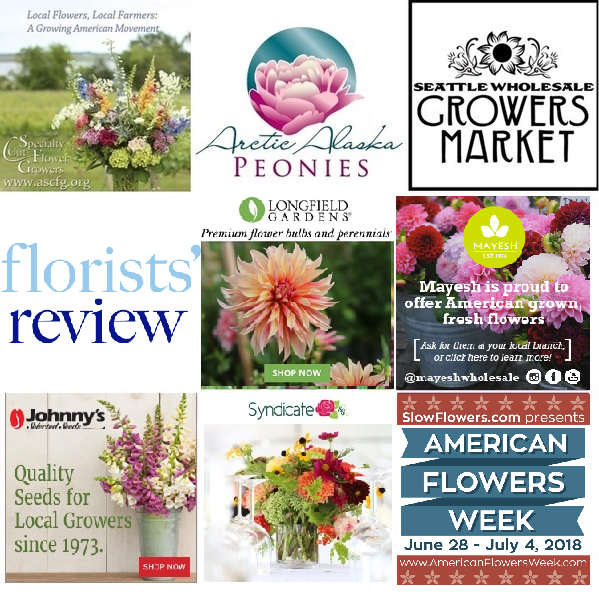 And thank you to our lead sponsor for 2018, Florists’ Review magazine. I’m delighted to serve as Contributing Editor for the new Slow Flowers Journal, found in the pages of Florists’ Review. It’s the leading trade magazine in the floral industry and the only independent periodical for the retail, wholesale and supplier market. Take advantage of the special subscription offer for members of the Slow Flowers Community.
And thank you to our lead sponsor for 2018, Florists’ Review magazine. I’m delighted to serve as Contributing Editor for the new Slow Flowers Journal, found in the pages of Florists’ Review. It’s the leading trade magazine in the floral industry and the only independent periodical for the retail, wholesale and supplier market. Take advantage of the special subscription offer for members of the Slow Flowers Community.
Arctic Alaska Peonies, a cooperative of passionate family farms in the heart of Alaska providing bigger, better peony flowers during the months of July and August. Visit them today at arcticalaskapeonies.com
Seattle Wholesale Growers Market, a farmer-owned cooperative committed to providing the very best the Pacific Northwest has to offer in cut flowers, foliage and plants. The Growers Market’s mission is to foster a vibrant marketplace that sustains local flower farms and provides top-quality products and service to the local floral industry. Find them at seattlewholesalegrowersmarket.com
Longfield Gardens provides home gardeners with high quality flower bulbs and perennials. Their online store offers plants for every region and every season, from tulips and daffodils to dahlias, caladiums and amaryllis. Visit them at longfield-gardens.com.
Syndicate Sales, an American manufacturer of vases and accessories for the professional florist. Look for the American Flag Icon to find Syndicate’s USA-made products and join the Syndicate Stars loyalty program at syndicatesales.com.
Johnny’s Selected Seeds, an employee-owned company that provides our industry the best flower, herb and vegetable seeds — supplied to farms large and small and even backyard cutting gardens like mine. Check them out at johnnysseeds.com.
Association of Specialty Cut Flower Growers. Formed in 1988, ASCFG was created to educate, unite, and support commercial cut flower growers. It mission is to help growers produce high-quality floral material, and to foster and promote the local availability of that product. Learn more at ascfg.org.
Mayesh Wholesale Florist. Family-owned since 1978, Mayesh is the premier wedding and event supplier in the U.S. and we’re thrilled to partner with Mayesh to promote local and domestic flowers, which they source from farms large and small around the U.S. Learn more at mayesh.com.
I’m Debra Prinzing, host and producer of the Slow Flowers Podcast. Next week, you’re invited to join me in putting more American grown flowers on the table, one vase at a time. And If you like what you hear, please consider logging onto Itunes and posting a listener review.
The content and opinions expressed here are either mine alone or those of my guests alone, independent of any podcast sponsor or other person, company or organization.
The Slow Flowers Podcast is engineered and edited by Andrew Brenlan. Learn more about his work at soundbodymovement.com.









